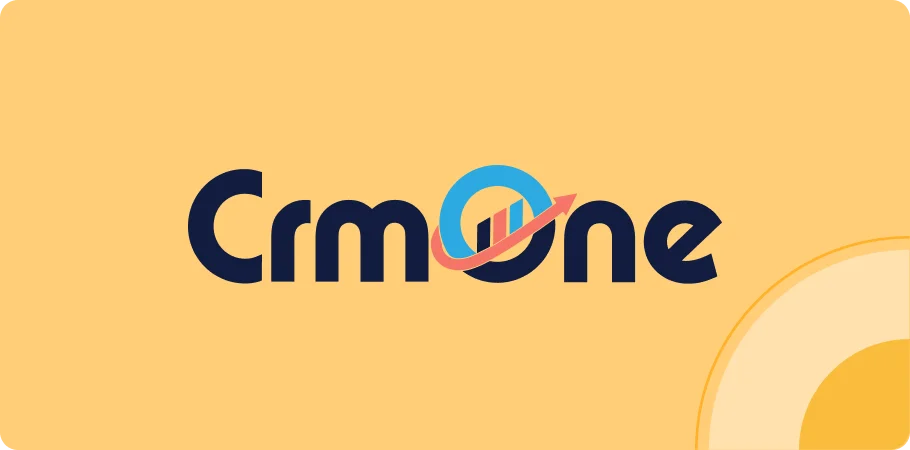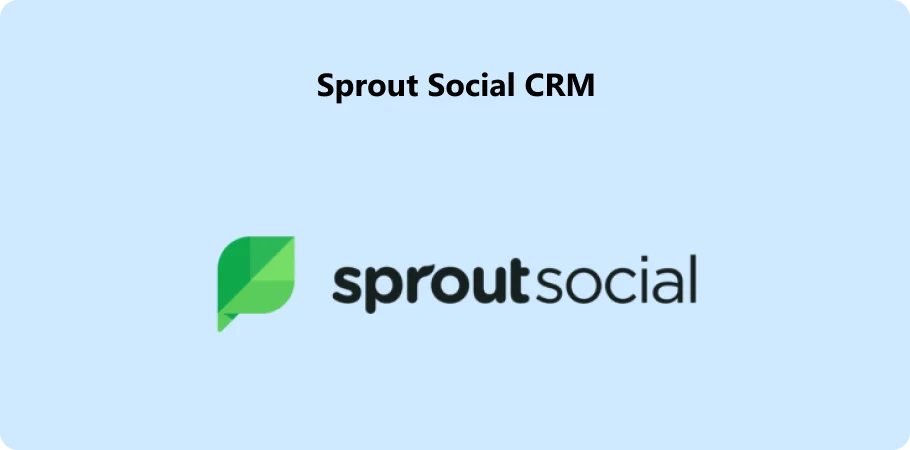In today’s digital age, monitoring reputation management has become crucial for businesses and individuals. It involves keeping a close eye on what people are saying about your brand or yourself online. This process is essential for understanding how your brand is perceived and can help you maintain a positive brand image.
Reputation management is vital for businesses. A strong business reputation can lead to more customers and higher sales, while a negative reputation can harm your bottom line. Companies can track and manage their online presence by using an online reputation management tool, ensuring they stay on top of reviews and mentions. Review monitoring helps businesses quickly address negative feedback and highlight positive comments, building a stronger customer relationship.
Individuals, such as public figures and professionals, also benefit from reputation management. By monitoring their online reputation, they can manage how others see them—are they potential employers, clients, or the general public? This helps maintain a positive personal brand image.
This blog aims to provide you with the best practices and tips for effective reputation management monitoring. By the end of this blog, you will understand how to keep track of your brand’s reputation, use online reputation management tools, and ensure your business reputation remains strong. Whether you are a PR professional, a reputation manager, or a business owner, these insights will help you stay informed about your online reputation and make better decisions for your brand’s success.
What is Reputation Management Monitoring?
Reputation Management Monitoring is the continuous process of tracking and analyzing what is being said about your brand online. This involves monitoring various platforms, including social media, review sites, blogs, and news outlets.
It also helps to understand the current brand perception and identify areas that may need attention to improve your brand’s online reputation.
How it Differs from Reputation Management
Reputation Management is a broader concept that includes all actions to influence and improve your brand’s reputation. It involves proactive strategies to shape public perception and respond to any issues.
Reputation Management Monitoring, on the other hand, is about collecting data and observing trends. It focuses on online reputation monitoring to gather actionable insights without necessarily taking immediate action. It’s the first step in the overall reputation management process.
Importance of Monitoring Your Online Reputation
Monitoring your brand reputation is crucial in today’s digital world. With so many platforms where people can voice their opinions, it’s important to know what is being said about your brand.
Tracking brand mentions and social media discussions can help you understand the overall brand sentiment. This helps you identify both positive sentiments and potential issues early on.
Benefits of Your Brand’s Reputation Landscape
Identifying Trends and Issues:
Online reputation monitoring helps you identify trends in public opinion. For example, you can spot if there’s a sudden increase in negative reviews or if a particular issue is being frequently mentioned. This allows you to address problems before they escalate.
Building Brand Authenticity:
By understanding how your brand is perceived, you can ensure that your actions align with its values. This helps build brand authenticity, making your brand more trustworthy to potential customers.
Improving Customer Relationships:
Keeping an eye on online reviews and customer feedback lets you respond promptly to concerns. Satisfied customers who see that their feedback is valued will likely develop a positive sentiment towards your brand.
Enhancing Brand Perception:
When you know what people say about your brand, you can improve your brand perception. This might include amplifying positive reviews and addressing negative feedback effectively.
Gaining Actionable Insights:
Reputation management software can provide you with actionable insights. These insights help you make informed decisions about your marketing strategies and customer engagement efforts.
Staying Ahead of Competitors:
By continuously monitoring your brand online, you can also monitor your competitors’ reputations. This allows you to identify their weaknesses and capitalize on opportunities to improve your brand’s standing in the market.
Maintaining Positive Sentiment:
Regularly monitoring your brand’s online reputation helps maintain a positive sentiment around your brand. This can attract more potential customers and foster loyalty among existing ones.
By integrating reputation management monitoring into your business practices, you can ensure that you stay informed about your brand’s online reputation and take proactive steps to maintain and improve it. This not only helps in managing your brand’s image but also contributes to long-term success and growth.
Ten Best Practices for Reputation Management Monitoring

1. Set Clear Objectives
Define Goals for Monitoring Efforts:
Before starting any reputation management efforts, setting clear objectives is crucial. Knowing what you aim to achieve helps streamline the process and measure success effectively.
Examples of Common Objectives:
Crisis Detection: Identifying potential problems early can help prevent them from escalating into major issues.
Sentiment Analysis: Understanding how people feel about your brand helps tailor your strategies to improve customer satisfaction and loyalty.
2. Identify Key Metrics
Importance of Selecting Relevant Metrics:
Identifying the proper metrics is essential for effective reputation monitoring. It ensures that you focus on the most impactful aspects of your brand’s reputation.
Examples of Key Metrics:
Sentiment Score: This metric helps understand customer sentiment towards your brand.
Number of Mentions: Tracking the volume of mentions can indicate public interest and engagement levels.
3. Use Advanced Online Reputation Management Tools
Leveraging Technology:
Using advanced monitoring tools can significantly enhance your reputation management efforts. These tools automate data collection and provide valuable insights.
4. Monitor Social Media Channels
Role of Social Media:
Social media plays a significant role in shaping your brand’s online reputation. It’s a primary platform where customers express their opinions.
Tips on Effective Social Media Monitoring:
Regularly monitor social media mentions and engage with your audience to address customer concerns promptly.
Use tools like Hootsuite for real-time monitoring and management.
5. Keep an Eye on Review Sites
Importance of Monitoring Review Sites:
Review sites are crucial as they significantly influence potential customers’ perceptions of your brand.
Prominent Review Sites:
Yelp: A popular platform for local business reviews.
Google Reviews: Widely used for its integration with Google Search and Maps.
6. Track Brand Mentions and Sentiment
Importance of Tracking Mentions Across Platforms:
Consistently track brand mentions to understand the public discourse about your brand.
Techniques for Sentiment Analysis:
Utilize sentiment analysis tools to gauge customer sentiment from reviews and social media posts.
7. Analyze Competitor Reputation
Benefits of Understanding Competitor Reputation:
Analyzing competitors helps you identify their strengths and weaknesses, providing insights for improving your strategies.
Tips for Competitor Analysis:
Use competitive benchmarking to compare your brand’s performance against competitors.
8. Regularly Review and Update Monitoring Strategies
Adapting Monitoring Strategies Over Time:
Regularly reviewing and updating your strategies ensures they remain practical and relevant.
Steps to Review and Update Strategies:
Evaluate the performance of your current monitoring tool and make necessary adjustments to keep strategies up to date.
9. Train Your Team
Importance of Training Team Members:
A well-trained team is essential for effective reputation management efforts.
Suggestions for Effective Training Programs:
Conduct regular training sessions on using monitoring software and analyzing data.
10. Report Findings and Insights
Importance of Documenting and Sharing Results:
Creating detailed reports helps you understand the impact of your reputation management efforts and make informed decisions.
Best Practices for Creating Reports:
Use review management software to create custom reports highlighting key findings and actionable insights.
By implementing these best practices, you can effectively monitor and manage your brand’s online reputation, ensuring you stay informed and prepared to maintain a positive brand image.
Top Tools for Online Reputation Management
Managing your brand’s online reputation is crucial for maintaining a positive image and ensuring customer trust. Here are some of the top tools available for reputation management monitoring, each offering unique features and benefits:
CrmOne

Features
Comprehensive Brand Monitoring:
CRMOne offers robust brand monitoring across various social channels and reviews sites, helping you stay updated with what’s being mentioned online about your brand.
AI-Powered Analysis:
This tool uses AI-powered algorithms to provide insights into brand and customer sentiments, enabling a deeper understanding of public perception.
Customizable Dashboards:
Allows users to create custom reports and dashboards tailored to their specific needs, enhancing the efficiency of monitoring reviews and review tracking.
Review Tracking and Response:
Streamlines collecting reviews from various platforms and allows for quick responses, boosting customer trust and satisfaction.
2. Brandwatch

Features:
Advanced Analytics:
Offers detailed analytics to monitor brand keywords and overall brand sentiment.
Social Media Integration:
Tracks are mentioned across all major social media platforms, providing comprehensive insights into brand perception.
Crisis Management Tools:
It has features to manage social media crises, ensuring timely responses to potential issues.
3. Hootsuite

Features:
Social Media Management:
Excellent for managing multiple social channels and monitoring social media mentions.
Content Scheduling:
Helps schedule posts and monitor engagement. This enables streamlined social media management.
Brand Monitoring:
Provides insights into brand sentiment and public opinion across various platforms.
Book a CrmOne Demo
Experience the CrmOne simplicity and power. Our experts will show you the best ways to use it and answer your questions in real time. See how CRMOne fits your needs.

4. Reputology

Features:
Review Site Monitoring:
Focuses on monitoring reviews from key sites such as Yelp and Google Reviews.
Local Businesses Support:
Tailored features for local businesses to track and manage their online reputation.
Analytics and Reporting:
Offers in-depth analytics to understand customer sentiments and improve service quality.
5. Google Alerts

Features:
Real-Time Alerts:
Provides real-time notifications for mentions of brand keywords and other publicly available data.
Simple Setup:
Easy to set up and use for tracking brand mentions and managing negative reviews.
Free Tool:
A cost-effective solution for basic brand monitoring needs.
6. Yext

Features
Listings Management:
Helps manage business listings across multiple platforms to ensure accurate and up-to-date information.
Review Monitoring and Response:
Tracks and responds to reviews, aiding in maintaining customer trust and satisfaction.
Analytics:
Provides valuable insights into customer feedback and brand sentiment.
7. Mention

Features:
Real-Time Monitoring:
Offers real-time monitoring of brand mentions across social media, blogs, forums, and news sites.
Sentiment Analysis:
It uses AI-powered sentiment analysis to gauge customer sentiment and brand perception.
Competitive Benchmarking:
Allows for comparison with competitors to identify areas for improvement.
8. Sprout Social

Features:
Social Media Integration:
Integrates with various social media platforms to provide comprehensive monitoring and engagement tools.
Analytics and Reporting:
Delivers detailed analytics for understanding brand sentiment and improving social media strategies.
Review Management:
Helps manage and respond to reviews across multiple platforms, enhancing customer relations.
By leveraging these tools, businesses can better understand their online reputation, track customer sentiments, and manage potential issues effectively. Each tool offers unique capabilities that can be tailored to fit specific needs, ensuring comprehensive reputation management for your brand.
Conclusion
This blog discussed the essentials of reputation management monitoring and its critical role in maintaining a positive brand reputation. We defined reputation management monitoring, outlined its difference from broader reputation management, and emphasized the importance of monitoring what’s being said about your brand online.
We also covered ten best practices for effective monitoring, including setting clear objectives, identifying key metrics, using advanced tools like CRMOne, and regularly updating your strategies. Additionally, we highlighted the top reputation management tools available today, each offering unique features to help businesses stay on top of their online reputation.
The importance of reputation management monitoring cannot be overstated. In today’s digital age, your brand’s reputation can significantly impact your success. Using reputation management tools, businesses can track online reviews, monitor social media mentions, and gain valuable insights into customer sentiments. This helps understand how your brand is perceived and allows you to respond promptly to any issues, thereby maintaining customer trust and loyalty. Effective monitoring enables you to stay ahead of potential crises and ensures that your brand remains in a positive light.
Implementing the best practices discussed in this blog can greatly enhance your reputation management efforts. Advanced monitoring software like CrmOne can streamline the process, providing real-time data and actionable insights.
Whether part of a small business or a large organization, these tools and strategies can help you maintain a strong online presence. Monitoring software not only aids in tracking mentions and reviews but also helps your marketing teams craft better communication strategies.
To sum up, it is crucial to monitor your brand’s online presence closely through effective reputation management strategies. Tools like CRMOne offer comprehensive solutions for media monitoring, review website tracking, and overall reputation management. By leveraging these tools and best practices, you can ensure that your brand reputation remains positive and robust, paving the way for long-term success.
Get started for Free
Start for free today. Boost your sales by clicking the Get Started button. With CRMOne, you can manage leads, sales, and customer service all in one place.

